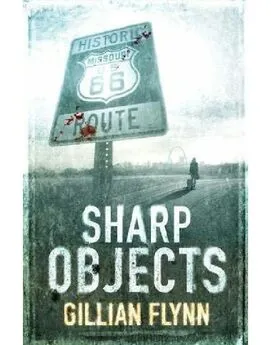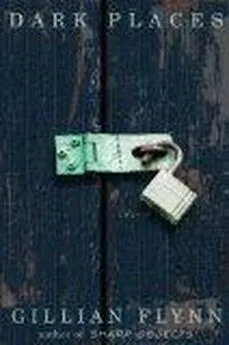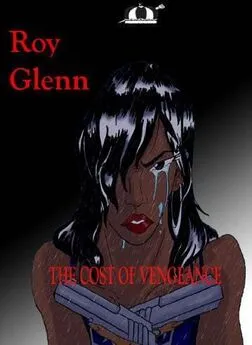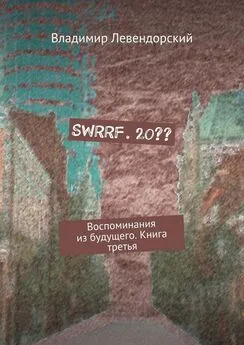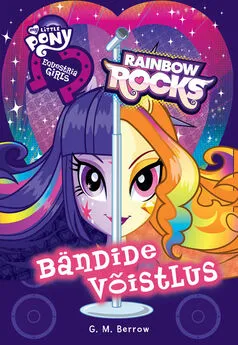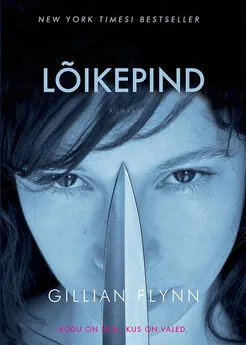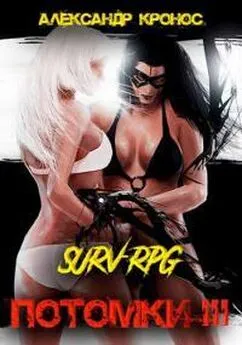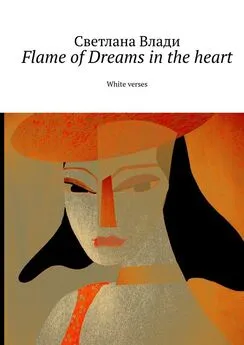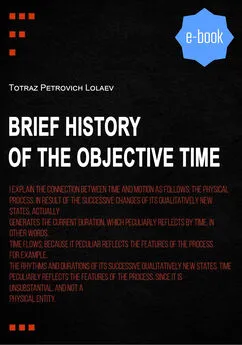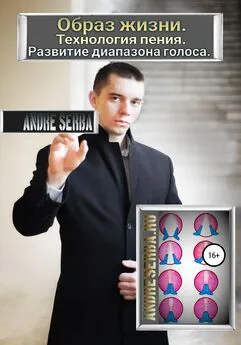Flynn, Gillian - Sharp_Objects
- Название:Sharp_Objects
- Автор:
- Жанр:
- Издательство:неизвестно
- Год:неизвестен
- ISBN:нет данных
- Рейтинг:
- Избранное:Добавить в избранное
-
Отзывы:
-
Ваша оценка:
Flynn, Gillian - Sharp_Objects краткое содержание
Sharp_Objects - читать онлайн бесплатно полную версию (весь текст целиком)
Интервал:
Закладка:
I took a cool bath with the lights off. Then I sat on the edge of the tub and rubbed my mother’s lotion all over my skin, once, quickly. Its bumps and ridges made me cringe.
On went a pair of light cotton pants and a long-sleeved crew neck. I brushed my hair and looked at myself in the mirror. Despite what I’d done to the rest of my body, my face was still beautiful. Not in the way that a person could pick out a single outstanding feature, but in the way that it was all in perfect balance. It made a stunning sort of sense. Big blue eyes, high cheekbones framing a small triangle of a nose. Full lips that turned slightly downward at the corners. I was lovely to look at, as long as I was fully clothed. Had things turned out differently, I might have amused myself with a series of heart-wretched lovers. I might have dallied with brilliant men. I might have married.
Outside, our section of Missouri sky was, as ever, electric blue. It made my eyes water to even think of it.
Ifound Richard at the Broussards’ diner, eating waffles without syrup, a stack of folders nearly as high as his shoulder on the table. I plopped down across from him and felt strangely happy—conspiratorial and comfortable.
He looked up and smiled. “Ms. Preaker. Have some toast. Every time I come here I tell them no toast. Doesn’t seem to work. Like they’re trying to meet a quota.”
I took a slice, spread a flower of butter over it. The bread was cold and hard, and my bite sprayed flecks onto the table. I brushed them under the plate and got to the point.
“Look, Richard. Talk to me. On record or off. I can’t make anything out of this. I can’t get objective enough.”
He patted the stack of files next to him, waved his yellow legal pad at me. “I’ve got all the objectivity you want—from 1927 on at least. No one knows what happened to any records before 1927. Probably some receptionist tossed them out, my guess, keep the poh-lice station uncluttered.”
“What kind of records?”
“I’m compiling a criminal profile of Wind Gap, a history of the town’s violence,” he said, flapping a folder at me. “Did you know that in 1975, two teenage girls were found dead at the edge of Falls Creek, very near where Ann Nash turned up, wrists cut? Police ruled it was self-inflicted. Girls were ‘overly close, unhealthily intimate for their age. A homosexual attachment is suspected.’ But they never found the knife. Weird.”
“One of them was named Murray.”
“Ah, you do know.”
“She’d just had a baby.”
“Yes, a little girl.”
“That would be Faye Murray. She went to my high school. They called her Fag Murray. The boys would take her out after school into the woods and take turns having sex with her. Her mother kills herself, and sixteen years later, Faye has to fuck every boy in school.”
“I don’t follow.”
“To prove she isn’t a lesbian. Like mother, like daughter, right? If she didn’t fuck those boys, no one would have had anything to do with her. But she did. So she proved she wasn’t a lesbian, but that she was a slut. So no one had anything to do with her. That’s Wind Gap. We all know each other’s secrets. And we all use them.”
“Lovely place.”
“Yes. Give me a comment.”
“I just did.”
It made me laugh, and I was surprised. I could picture turning in my copy to Curry: Police have no leads, but believe that Wind Gap is a “lovely place.”
“Look, Camille, I’ll make a deal. I’ll give you a comment you can use on the record, and you help me fill in these back stories. I need someone who’ll tell me what this town is really like, and Vickery won’t. He’s very…protective.”
“Give me a comment on record. But work with me off record. I won’t use anything you give me unless you say it’s okay. You can use anything I give you.” It wasn’t the straightest of deals, but it would have to do.
“What should my comment be?” Richard smiled.
“Do you really believe these killings were committed by an outsider?”
“For print?”
“Yeah.”
“We have not ruled anyone out.” He took a last bite of waffle and sat thinking, his eyes to the ceiling. “We are looking very closely at potential suspects within the community, but are also carefully considering the possibility that these killings may be the work of an outsider.”
“So you have no clue.”
He grinned, shrugged his shoulders. “I gave you my comment.”
“Okay, off record, you have no clue?”
He clicked the cap of the sticky syrup bottle up and down a few times, placed his silverware crossways on his plate.
“Off record, Camille, do you really think this seems like an outsider crime? You’re a police reporter.”
“I don’t.” Saying it out loud agitated me. I tried to keep my eyes off the prongs of the fork in front of me.
“Smart girl.”
“Vickery said you thought it was a hitchhiker or something like that.”
“Oh, damn it, I mentioned that as a possibility when I first got here—nine months ago. He holds on to it like it’s proof of my incompetence. Vickery and I have communication issues.”
“Do you have any real suspects?”
“Let me take you for drinks this week. I want you to spill everything you know about everyone in Wind Gap.”
He grabbed the check, pushed the syrup bottle back against the wall. It left a sugary ring on the table, and without thinking, I dipped a finger into it, put it to my mouth. Scars peeked out of a shirtsleeve. Richard looked up just as I was putting my hands back beneath the table.
Ididn’t mind the idea of spilling Wind Gap’s stories to Richard. I felt no particular allegiance to the town. This was the place my sister died, the place I started cutting myself. A town so suffocating and small, you tripped over people you hated every day. People who knew things about you. It’s the kind of place that leaves a mark.
Although it’s true that on the surface, I couldn’t have been treated better when I lived here. My mother saw to that. The town loved her, she was like a cake topping: the most beautiful, sweet girl Wind Gap had ever raised. Her parents, my grandparents, had owned the pig farm and half the houses around it, and kept my mother under the same strict rules they applied to their workers: no drinking, no smoking, no cursing, church service mandatory. I can only imagine how they must have taken the news when my mother became pregnant at seventeen. Some boy from Kentucky who she met at church camp came for a Christmas visit and left me in her belly. My grandparents grew angry twin tumors to match my mother’s expanding tummy, and were dead of cancer within a year of my birth.
My mother’s parents had friends in Tennessee, and their son began wooing Adora before I was on solids, making visits nearly every weekend. I cannot picture this courtship as anything but awkward. Alan, pleated and pressed, elaborating on the weather. My mother, alone and untended for the first time in her life, in need of a good match, laughing at…jokes? I’m not sure Alan has ever made a joke in his life, but I’m sure my mother found some reason to giggle girlishly for him. And where was I in this picture? Probably in some far corner room, kept quiet by the maid, Adora slipping her an extra five bucks for the trouble. I can imagine Alan, proposing to my mother while pretending to look over her shoulder, or fiddling with a plant, anything to avoid eye contact. My mother accepting graciously and then pouring him more tea. A dry kiss was exchanged, perhaps.
No matter. By the time I could talk, they were married. I know almost nothing about my real father. The name on the birth certificate is fake: Newman Kennedy, for my mother’s favorite actor and president, respectively. She refused to tell me his true name, lest I hunt him down. No, I was to be considered Alan’s child. This was difficult, as she soon had Alan’s child, eight months after he married her. She was twenty, he was thirty-five, with family money that my mother didn’t need, having plenty of her own. Neither of them have ever worked. I’ve learned little else of Alan over the years. He’s a ribbon-winning equestrian who doesn’t ride anymore because it makes Adora nervous. He’s often ill, and even when he’s not, he’s mostly immobile. He reads countless books on the Civil War and seems content to let my mother do most of the talking. He’s as smooth and shallow as glass. Then again, Adora has never tried to forge a bond between us. I was considered Alan’s child but never really fathered by him, never encouraged to call him anything but his proper name. Alan never gave me his last name and I never asked for it. I remember trying out Dad once when I was little, and the shock on his face was enough to scotch any further attempts. Frankly, I think Adora prefers us to feel like strangers. She wants all relationships in the house to run through her.
Ah, but back to the baby. Marian was a sweet series of diseases. She had trouble breathing from the start, would wake in the night spluttering for air, splotchy and gray. I could hear her like a sick wind down the hall from me, in the bedroom next to my mother. Lights would click on and there would be cooing, or sometimes crying or shouting. Regular trips to the emergency room, twenty-five miles away in Woodberry. Later she had trouble digesting and sat murmuring to her dolls in a hospital bed set up in her room, while my mother poured sustenance into her through IVs and feeding tubes.
During those last years, my mother pulled out all her eyelashes. She couldn’t keep her fingers off them. She left little piles of them on tabletops. I told myself they were fairy nests. I remember finding two long blonde lashes stuck to the side of my foot, and I kept them for weeks next to my pillow. At night I tickled my cheeks and lips with them, until one day I woke to find them blown away.
By the time my sister finally died, I was grateful in a way. It seemed to me that she’d been expelled into this world not quite formed. She was not ready for its weight. People whispered comfort about Marian being called back to heaven, but my mother would not be distracted from her grief. To this day it remains a hobby.
My car, faded blue, covered with bird crap, its leather seats sure to be steaming, didn’t exactly beckon me, so I decided to take a turn around town. On Main Street, I passed the poultry shop, where chickens are dropped off fresh from the Arkansas killing fields. The smell flared my nostrils. A dozen or more stripped birds hung lasciviously in the window, a few white feathers papering the ledge beneath them.
Toward the end of the street, where a makeshift shrine to Natalie had sprung up, I could see Amma and her three friends. They were sifting through the balloons and drugstore gifts, three standing guard while my half sister snatched up two candles, a bouquet of flowers, and a teddy bear. All but the bear went into her oversized purse. The teddy she held as the girls locked arms and skipped mockingly toward me. Straight at me actually, not stopping until they were an inch from me, filling the air with the kind of heavy perfume dispensed on powdered strips in magazines.
“Did you see us do that? Are you going to put it in your newspaper story?” Amma shrieked. She’d definitely gotten over her dollhouse tantrum. Such childish things, clearly, were left at home. Now she’d traded in her sundress and was wearing a miniskirt, platform sandals, and a tube top. “If you are, get my name right: Amity Adora Crellin. Guys, this is…my sister. From Chicago. The bastard of the family. ” Amma wiggled her eyebrows at me, and the girls giggled. “Camille, these are my loooovely friends, but you don’t need to write about them. I’m the leader.”
Читать дальшеИнтервал:
Закладка:
